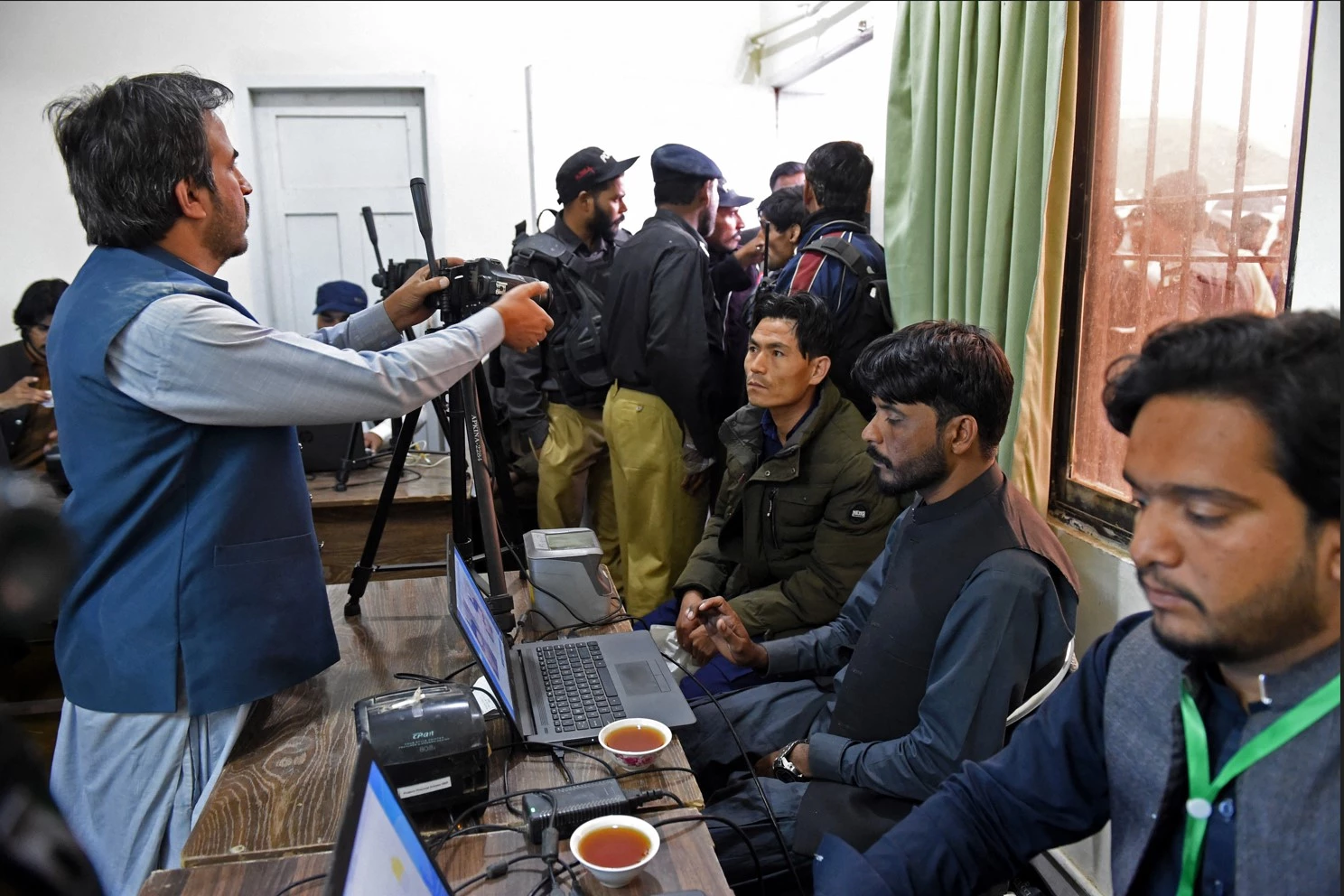Over 550,000 Afghans leave Pakistan as crackdown enters its second day

Stay tuned with 24 News HD Android App

As many as 550,000 Afghans have left Pakistan so far as the grand countrywide police operation against the foreigners residing illegally in the country entered its second day on Thursday, reported 24NewsHD TV channel.
The government had given these foreigners the deadline of October 31 to leave the country voluntarily or else they would be evicted forcibly.
Special control rooms have been set up in Khyber Pakhtunkhwa (KP) and Balochistan where the police, Pakistan Customs, National Database Registration Authority (NADRA) and the Federal Investigation Agency (FIA) officials are gathering data of Afghan immigrants for their deportation.
Camps have been set up temporarily in Peshawar, Quetta, Chaman and Landi Kotal where these Afghans would be kept before their repatriation.
As per the government’s claim, facilities have been provided to the Afghans staying in these camps such as medical treatment and food.
Data of over 52,000 Afghans living in KP has been gathered since October 22.
Thousands of Afghan immigrants are crossing over into their country daily through Torkham and Chaman border crossings.
As many as 17, 118 Afghans left for their country yesterday on Wednesday on 270 vehicles.
Of these, 5062 were males, 4116 females and 7,940 were children.
According to the International Organization for Migration (IOM), the number of Afghan nationals leaving for their country has increased in recent months.
As per the statistics gathered by the organisation, there was a time when 4.8 million Afghanis were living in Pakistan; of whom 1.7 million were undocumented.
Giving further details, the organisation says that over 500,000 Afghan nationals, both documented as well as undocumented, had left for their country in 2016.
Furthermore, 600,000 to 800,000 Afghan nationals had taken refuge in Pakistan after the Taliban takeover in August 2015.
According to AFP, thousands joined a snaking queue that stretched seven kilometres at the busiest border point, with officials reporting at least 29,000 people crossed into Afghanistan the day before.
"Since November 1, the process of arrest and subsequent deportation of illegal foreigners has begun. However, the voluntary return of illegal foreigners will also continue and be encouraged," the interior ministry said in a statement.
It said more than 140,000 people have left Pakistan since the start of October when the order was issued by an unelected caretaker government ahead of elections due in January.
Forty-nine holding centres, some capable of holding several thousand people, opened across the country on Wednesday to process and deport Afghans, state media said.
"My heart doesn't really want to return to Afghanistan but I have no other choice," said 32-year-old Irfanullah, as he waited to be deported. "The police were harassing me... they used to disrespect all the men and women by entering our houses. That's why we are returning, to avoid further humiliation."
Millions of Afghans have poured into Pakistan in recent decades, fleeing a series of violent conflicts, including an estimated 600,000 since the Taliban government seized power in August 2021 and imposed its harsh interpretation of Islamic law.
Pakistan has said the deportations are to protect its "welfare and security" after a sharp rise in attacks, which the government blames on militants operating from Afghanistan.
- 'Emergency situation' -
Authorities on the Afghan side of the border have been overwhelmed by the scale of the exodus as they attempt to process those returning -- some of whom are setting foot in Afghanistan for the first time in their lives.
Samiullah Samoon, who leads immigration registration at Torkham, said the crossing is facing "an emergency situation".
After fleeing to Afghanistan, 35-year-old Benafsha, four months pregnant with her seventh child, was waiting to be processed before moving on to her province of origin, Kunduz, with her family.
"In Kunduz, we don't have land, or a home, or work," said the woman, who was never documented in Pakistan despite living there almost all her life. "We don't have anything there."
The Taliban government has urged Pakistan to give undocumented Afghans in the country more time to leave as pressure mounts at border posts.
Reporters: Malik Ashraf, Muhammad Imran and Asad Awan
